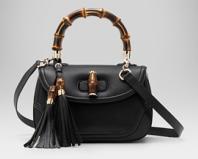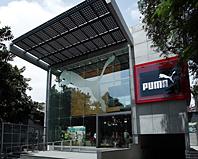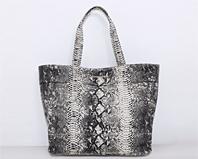Kering is integrating sustainability into its brands, through processes and products that have a positive environmental and social impact, whilst respecting each brand’s unique values and identity.
Gucci launched an innovative sunglasses model made in liquid wood
 Gucci launched sunglasses made from Liquid Wood, a biodegradable, eco-friendly material that represents an alternative to the plastic usually in the production of eyewear. Liquid Wood boasts a composition from bio-based materials: wood fibre from sustainably managed forests and lignin from the paper manufacturing process and natural wax.
Gucci launched sunglasses made from Liquid Wood, a biodegradable, eco-friendly material that represents an alternative to the plastic usually in the production of eyewear. Liquid Wood boasts a composition from bio-based materials: wood fibre from sustainably managed forests and lignin from the paper manufacturing process and natural wax.
The initial prototype in semi-matte black with shaded grey glass lenses has been developed using the bamboo-inspired frame, a must-have in the most recent Gucci eyewear collection that meets a revolutionary material true to Gucci’s commitment to environmental sustainability. In addition to the hinges, the small metal rings that outline the bamboo joints are made from recycled metal. Meanwhile, the mineral glass lenses enhance the elegant style of these large, wrap-around shaped sunglasses.
PUMA Re-Cut Project
Combining design with the reuse of materials and social impacts, sparked the idea behind PUMA’s launch of the Re-Cut project.
 Post-production scraps are all part of the game when it comes to designing apparel. A desire to waste less, recycle more and steer our materials through a more efficient chain is increasingly shared across the sector. Cutting down waste like this tackles sustainability right from the beginning of the lifecycle, but move right along to the end of the footwear’s cycle and there too you will find sustainable practices. A few hundred metres stroll down the road from the PUMA offices in Ho Chi Minh City, you will find the result of the collection’s revenues: the Be Tho Orphanage. Weaving in a social aspect to the project, for each item of footwear sold, 100% of profits go directly from the consumer’s pocket to support this local venture; funding medical care, recreational activities and food at the orphanage.
Post-production scraps are all part of the game when it comes to designing apparel. A desire to waste less, recycle more and steer our materials through a more efficient chain is increasingly shared across the sector. Cutting down waste like this tackles sustainability right from the beginning of the lifecycle, but move right along to the end of the footwear’s cycle and there too you will find sustainable practices. A few hundred metres stroll down the road from the PUMA offices in Ho Chi Minh City, you will find the result of the collection’s revenues: the Be Tho Orphanage. Weaving in a social aspect to the project, for each item of footwear sold, 100% of profits go directly from the consumer’s pocket to support this local venture; funding medical care, recreational activities and food at the orphanage.
Infact the brand has gone ahead and opened a sustainable PUMA Store in India, the first one worldwide revolutionizing the concept of retail spaces globally. The store – located in the Bangalore suburb Indiranagar – is spread over a total of 800 sq meters, has been locally developed and sourced and incorporates a number of revolutionary and innovative design elements to ensure major energy savings as well as environmentally friendly-sourcing practices. The opening underlines PUMA’s commitment to reduce CO2 emissions, energy, water and waste in PUMA offices, stores, warehouses and direct supplier factories by 2015.
Environmental considerations at Saint Laurent
 Environmental considerations are taken into account in the design of new stores and packaging, following Hedi Slimane arrival at Saint Laurent. A number of environmental considerations in the design of new stores and packaging. All boxes and shopping bags will be made from cardboard that is 100% FSC (Forest Stewardship Council) certified, fully recyclable and coming from ECF (Elemental Chlorine Free) pulps.
Environmental considerations are taken into account in the design of new stores and packaging, following Hedi Slimane arrival at Saint Laurent. A number of environmental considerations in the design of new stores and packaging. All boxes and shopping bags will be made from cardboard that is 100% FSC (Forest Stewardship Council) certified, fully recyclable and coming from ECF (Elemental Chlorine Free) pulps.
In stores, LED (Light Emitting Diode) lighting will be used to optimize energy consumption in the new concept designed by Hedi Slimane. In addition, a specific project will be jointly carried out by the sustainability teams at Saint Laurent and Kering regarding the optimization of HVAC (Heating, Ventilation and Air-Conditioning) use.
Stella McCartney Bags Made in Kenya
 London Fashion Week set the stage for sustainable fashion last Septmeber, with a performance that fused high-fashion with low-environmental impacts with Stella McCartney launching her capsule Green Carpet Challenge (GCC) collection. Moving further Stella McCartney has created a range of hand-made recycled canvas tote bags in collaboration with the International Trade Centre’s Ethical Fashion Initiative. The programme goes beyond charity and aims to generate economic independence for participating artisans. By providing work and training, sustainable livelihoods are being created within some of the most disadvantaged communities in Africa.
London Fashion Week set the stage for sustainable fashion last Septmeber, with a performance that fused high-fashion with low-environmental impacts with Stella McCartney launching her capsule Green Carpet Challenge (GCC) collection. Moving further Stella McCartney has created a range of hand-made recycled canvas tote bags in collaboration with the International Trade Centre’s Ethical Fashion Initiative. The programme goes beyond charity and aims to generate economic independence for participating artisans. By providing work and training, sustainable livelihoods are being created within some of the most disadvantaged communities in Africa. 








